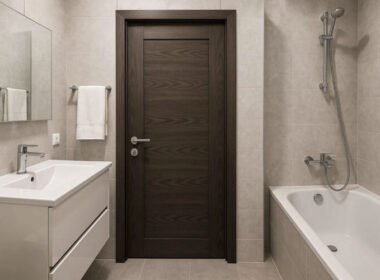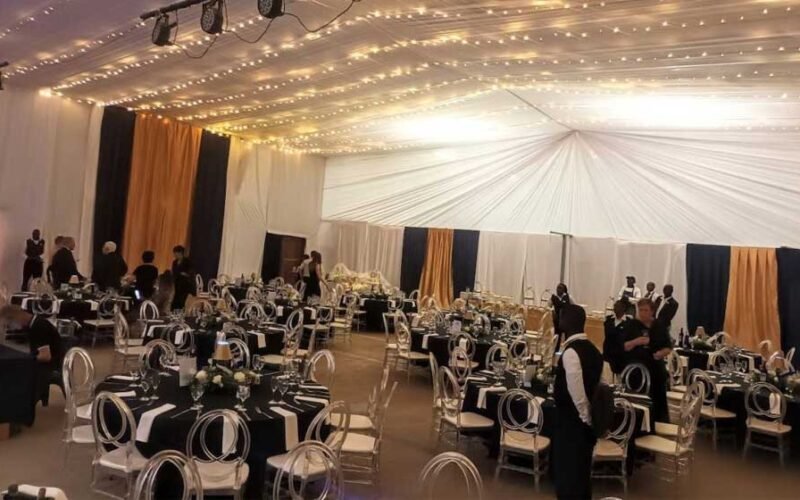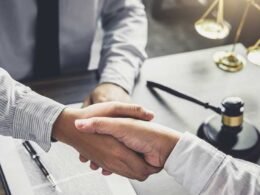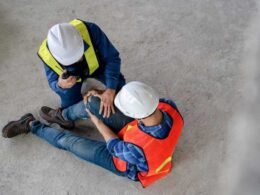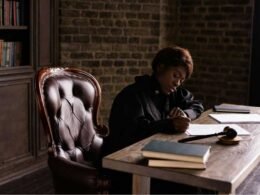We’ve all seen that iconic yellow triangle warning us, “Caution: Wet Floor.” It’s a staple of safety protocol, but what happens when that little sign isn’t enough? If you’ve been injured on someone else’s property due to unsafe conditions, consulting a st.louis premises liability lawyer could be beneficial. Slip and fall accidents aren’t always bad luck—they can result from poor property maintenance and, more importantly, legal negligence. A wet floor sign might just be the tip of the iceberg in premises liability. Let’s mop up the myths and dive into what constitutes negligence in property upkeep.
The Basics: Duty of Care Isn’t Optional
Property owners—whether a mom-and-pop shop or a massive commercial complex—have a legal duty to maintain their premises safely. This obligation, known as the “duty of care,” extends to employees, customers, tenants, and sometimes even trespassers (yes, you read that right). When that duty is breached, and someone gets hurt, that’s where negligence comes into play.
In legal terms, negligence involves four key elements: duty, breach, causation, and damages. For example, if a store knows its ceiling is leaking and fails to fix it or warn customers, someone slips, which could spell liability. It’s not just about the fall—it’s about whether it could and should have been prevented.
Beyond the Sign: Common Maintenance Failures
Let’s be honest: a wet floor sign is great, but it’s not a get-out-of-jail-free card. Property owners can’t simply plop one down and call it a day. Courts often look at the reasonableness of the actions taken. Was the spill cleaned up promptly? Was the sign visible? Were there repeated complaints about the same area?
Some examples of negligent property maintenance include:
- Cracked sidewalks or uneven flooring that present trip hazards
- Poor lighting in stairwells or parking lots that hides dangers
- Broken handrails on stairs or balconies
- Failure to clear ice and snow promptly
- Neglected maintenance logs or inspections that show a pattern of inattention
These oversights can turn a simple stroll into an ER visit—and a courtroom appearance.
Inside the Courtroom: How Liability Is Determined
Slip and fall cases are rarely cut-and-dried. A plaintiff must prove that the property owner knew or should have known about the hazard and didn’t act reasonably to correct it. This is where surveillance footage, maintenance records, and witness testimony come into play.
Comparative negligence can also muddy the waters. If someone was texting while walking and missed the giant puddle underfoot, a jury might decide both parties share responsibility. In some states, this means reduced damages; in others, it might mean no compensation if the plaintiff is more than 50% at fault.
The Hidden Dangers of Inaction
Negligence in property maintenance doesn’t just risk injuries—it can also lead to reputational damage and legal costs that far outweigh the price of a mop or snow shovel. Regular inspections, staff training, and quick response protocols aren’t just good business practices but legal shields.
Being aware of your surroundings and promptly reporting hazards can prevent tenant and guest harm. However, the onus still falls on the property owner or manager to address concerns appropriately. When complaints are ignored, that negligence can become a liability nightmare.
Not All Hazards Are Created Equal
It’s worth noting that not every hazard equals a lawsuit. For a claim to stick, the danger must be unreasonable and not open and obvious. For example, slipping on a banana peel in a grocery aisle might be actionable, but tripping over a fire hydrant in broad daylight probably won’t be. That’s because courts consider whether a reasonable person would have seen and avoided the danger.
In short, context matters. Timing, visibility, and prior knowledge all factor into whether a court will see a slip as an unfortunate accident or a negligent oversight.
Conclusion
While wet floor signs might be the face of hazard prevention, real safety comes from diligence, documentation, and doing the right thing before an injury occurs. If you’ve been hurt on someone else’s property, don’t assume it’s your fault—or theirs. The truth often lies in the details. Navigating premises liability can be complex, so seeking legal advice is crucial. A seasoned st. louis premises liability lawyer can assess your situation, clarify your rights, and help determine if that fall was more than unlucky footing.



